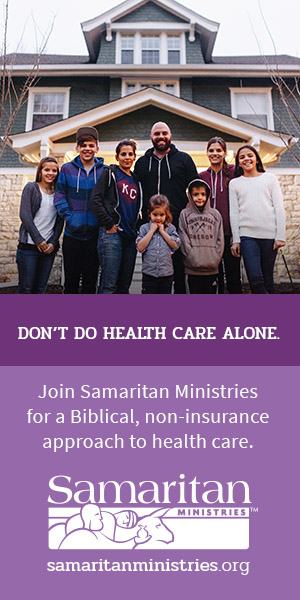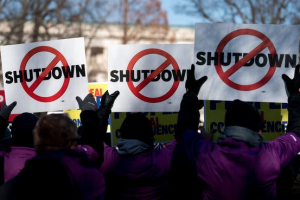In Minnesota, a coalition of Twin Cities faith organizations and local businesses sued and called on Gov. Tim Walz to end what it calls an unconstitutional and draconian scheme to close businesses and places of worship.
This lawsuit says it all
The Minnesota lawsuit states, in part, that Walz’s executive orders during the pandemic unfairly pick “winners and losers” by closing some businesses, schools and places of worship, while allowing big-box stores and others to remain open.
“Worshipers across Minnesota have been prohibited from assembling to celebrate Easter and the Passover, while liquor stores have remained open,” says the lawsuit. “Target, Walmart, Walgreens, and CVS are open, while local Hallmark stores are closed. Golf courses and bait shops are open, but indoor amusement facilities are shut. Nobody can legally get a haircut, but dogs may now be groomed. Businesses in Minnesota have been forced to carry rent obligations, loan payments, and tax obligations without relief and without income. Those businesses’ landlords, in turn, have not been able to collect rent from tenants who cannot afford to pay it.”
Minnesota faith leaders and business owners are not alone.
In April, after just one month into shutdown orders, three Southern California churches sued California Gov. Gavin Newsom and other officials, arguing that social distancing orders violate the First Amendment right to freedom of religion and assembly.
Most recently religious leaders in California have vowed to reopen churches on Sunday, May 31 (Pentecost Sunday) with or without Gov Newsom’s approval, perhaps taking a cue from outspoken Elon Musk who opened his Fremont, CA, Tesla production factory in early May, contrary to state and county orders.
Musk reopened his auto manufacturing facility against orders, asking that he be arrested if either California or the county were to take action. So far, no action taken against Musk. Interesting.
In early May, 10 Oregon churches sued Oregon Gov. Kate Brown to reopen without restrictions.
Around the same time, a number of churches in Michigan sued Governor Gretchen Whitmer for “unlawfully” issuing executive orders to extend the state of emergency, prohibiting individuals from participating in public religious worship amid the coronavirus (COVID-19) pandemic.
The Michigan lawsuit claims that Whitmer has infringed upon the plaintiffs’ First Amendment rights to freely exercise religion and freely assemble against “unwarranted government intrusion.” The plaintiffs also claim that the Michigan Constitution protects the religious rights of residents, as well as their freedom to associate and assemble.
According to Detroit’s local news, Gov. Whitmer eventually added language in a new executive order that allows residents to participate in public religious worship without being penalized. (Good luck trying to find this language in all the legalese.)
The Michigan governor is not totally out of the woods yet. Lawyers say the interested parties will still participate in other lawsuits against Whitmer through amicus briefs, as they believe her extension of the state of emergency was unlawful and invalid.
Michigan legislators even sued Michigan Gov. Gretchen Whitmer’s use of emergency powers to extend Michigan’s state of emergency.
However—in a logic-defying ruling five days ago, Michigan Court of Claims Judge Cynthia Diane Stephens dismissed the lawsuit, ruling that Whitmer’s action of re-declaring the same emergency violated the provisions of the state’s Emergency Management Act, the Legislature’s challenges to Whitmer’s use of the Emergency Powers of Governor Act to issue executive orders are meritless, according to an article by CNN.
Things went differently in Wisconsin.
Wisconsin’s Supreme Court ruled last week that Democratic Gov. Tony Evers’ stay-at-home order was “unlawful” and “unenforceable,” leading that state to be fully reopened.
Just this week, four South Jersey churches sue New Jersey in an attempt to reopen.
RELATED RESOURCES:
- Churches Sue California Governor Over Antivirus Orders
- Oregon governor sued over COVID-19 order that allows numerous gatherings, restricts churches
- 10 Oregon churches sue governor, want to worship without restrictions amid coronavirus pandemic
- Four South Jersey Churches sue state to reopen –
- Michigan churches sue Gov. Whitmer for ‘restricting religious freedoms’ by extending state of emergency
- State’s Framework for Reopening Churches Not Enough to Appease Pastor Suing State, County
- Lawsuit by group of churches, businesses challenges Minnesota’s partial shutdown, saying it picks ‘winners and losers’



You must be logged in to post a comment.